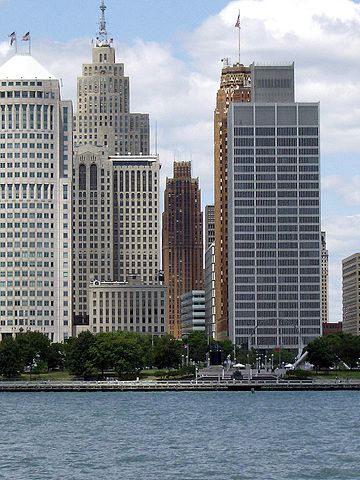Another chapter has been written in the bitter fight between Detroit and one of its largest creditors, Syncora. The bond insurer has the city’s bankruptcy mediators of blatantly favoring pensioners while pushing most of the pain of the bankruptcy onto the city’s creditors.
Syncora said in a court filing today that Detroit’s grand bargain deal was “the product of agenda-driven, conflicted mediators who colluded with certain interested parties to benefit select favored creditors to the gross detriment of disfavored creditors and, remarkably, the City itself.”
Syncora feel they are being treated unfairly in Detroit’s bankruptcy. As part of the grand bargain, public pensioners had to accept significant cuts to their benefits. But the cuts weren’t as significant as they could have been.
But much steeper cuts are being enforced elsewhere, including on Detroit’s bondholders, of which Syncora is one.
In addition to being a bondholder, Syncora insures hundreds of millions of dollars worth of pension obligation certificates of participation (COPs) issued by Detroit. Those instruments became worthless when the city declared bankruptcy.
As part of the city’s bankruptcy proceedings, Syncora stands to lose between 90 percent and 100 percent of its investment—all told, around $250 million, including the money they’ll have to pay to clients for whom Syncora had guaranteed payment from Detroit bonds. More from the Detroit Free-Press:
Bond insurer Syncora — which could lose hundreds of millions in the bankruptcy — argued that Judge Steven Rhodes must reject the city’s sweeping restructuring plan because of the “naked favoritism” of lead bankruptcy mediator Gerald Rosen and mediator Eugene Driker.
The accusations thrust the mediators into the middle of a fight between the city and Syncora that has become so bitter that Rhodes ordered the city to stop using war analogies to describe the insurer’s actions.
Rosen and Driker negotiated terms of the grand bargain, which allows the city to reduce pension cuts and transfers the DIA to a charitable trust. They helped solicit donations from nonprofit foundations, which pledged $366 million over 20 years, and convinced the DIA to contribute $100 million over 20 years from its own donors. The state of Michigan then agreed to contribute $195 million in upfront cash to the deal, which must be approved by Rhodes.
In its filing, Syncora cited several public statements by Rosen, including his statement at a press conference that the grand bargain is “about Detroit’s retirees who have given decades and decades of their lives devoted to Detroit.”
Syncora argued that Driker should have disqualified himself from mediating the grand bargain since his wife is a former member of the DIA’s board of directors.
Rosen and Driker did not immediately respond to requests seeking comment.
For a breakdown of Detroit’s plans to repay various creditors, see Pension360’s coverage here.
